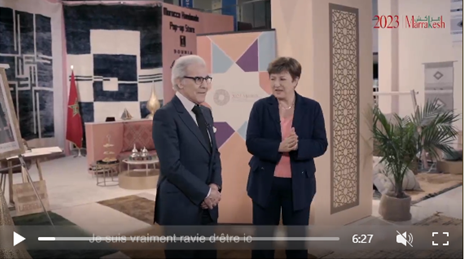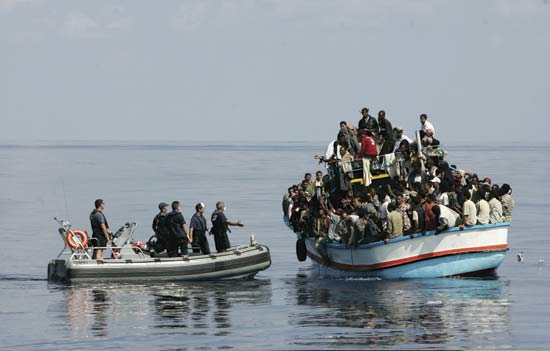The Governor of Morocco’s central bank, Bank Al-Maghrib (BAM), Abdellatif Jouahri has said that the annual meetings of the World Bank (WB) and the International Monetary Fund (IMF) will serve as an opportunity to display Rabat’s commitment to the development of the African continent.
“This meeting aims to highlight Morocco’s commitment to African countries through the royal vision of South-South cooperation,” Jouahri said at a press briefing at the start of the annual meetings in the Moroccan city of Marrakech this October 9 through 16.
The event will allow BAM to emphasize the performance of the Moroccan banking system in Africa, which has been successfully expanding over the past two decades, Jouahri was quoted by Morocco World News Website as saying.
“The challenges facing Africa, including the issue of debt, food security, and climate change, will be at the center of discussions,” Jouahri said.
He also commended the selection of Morocco as the host of major events, stressing that this reflects the country’s commitment towards Africa.
Jouahri stressed that the event demonstrates the trust Morocco enjoys with international institutions and financial markets, thanks to the reforms initiated under King Mohammed VI’s vision.
He pointed to the organization of the meetings only a few weeks following the devastating earthquake that struck central Morocco as prime evidence of this trust.
“The holding of these meetings, a few weeks after the earthquake that struck several provinces of Morocco, demonstrates the Kingdom’s ability to face challenges and its potential as the host country for this major international event,” Jouahri said, insisting that this venue reflects the trust the country enjoys as a regional leader on several levels.
The BAM governor said that the event will serve as an opportunity to showcase Morocco’s “exemplary performance in structural reforms and governance.”
The Annual meetings features several panels on topical issues, including climate change, and the digital revolution, in an uncertain international context marked by crises like the Ukraine-Russia war and the post-pandemic upheavals.
“The debates will revolve around the need to rethink multilateralism and highlight global political and economic fragmentation,” he said.



